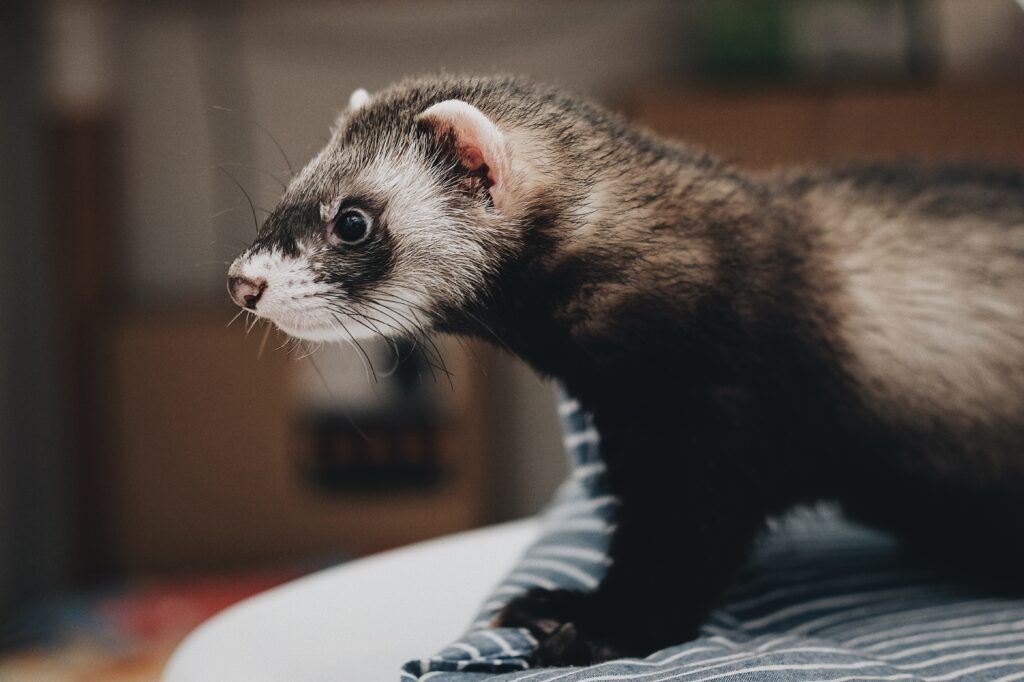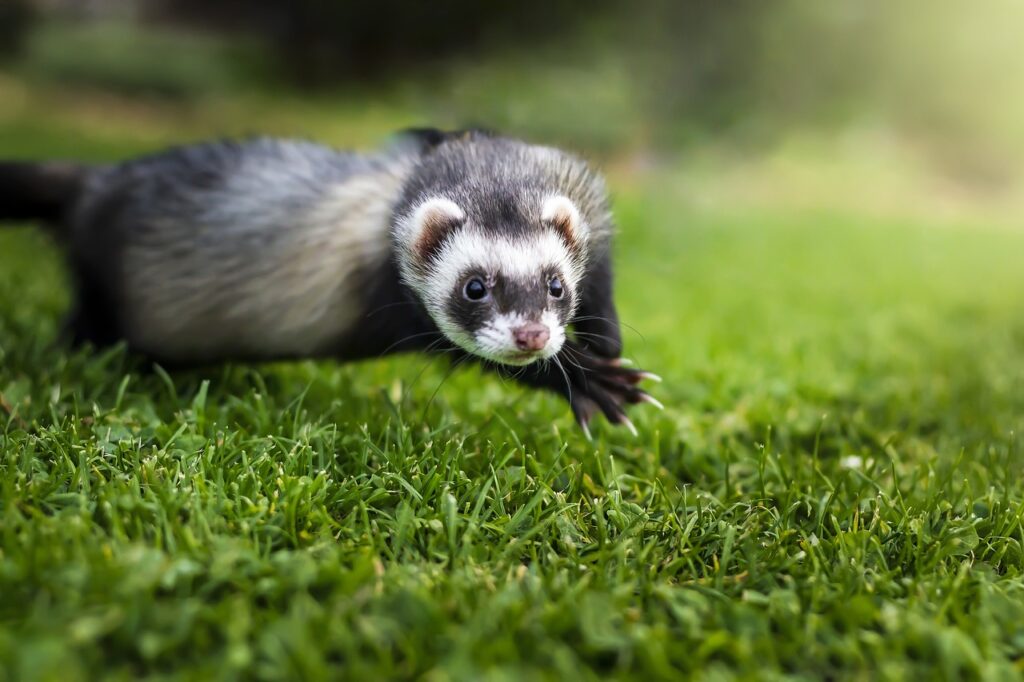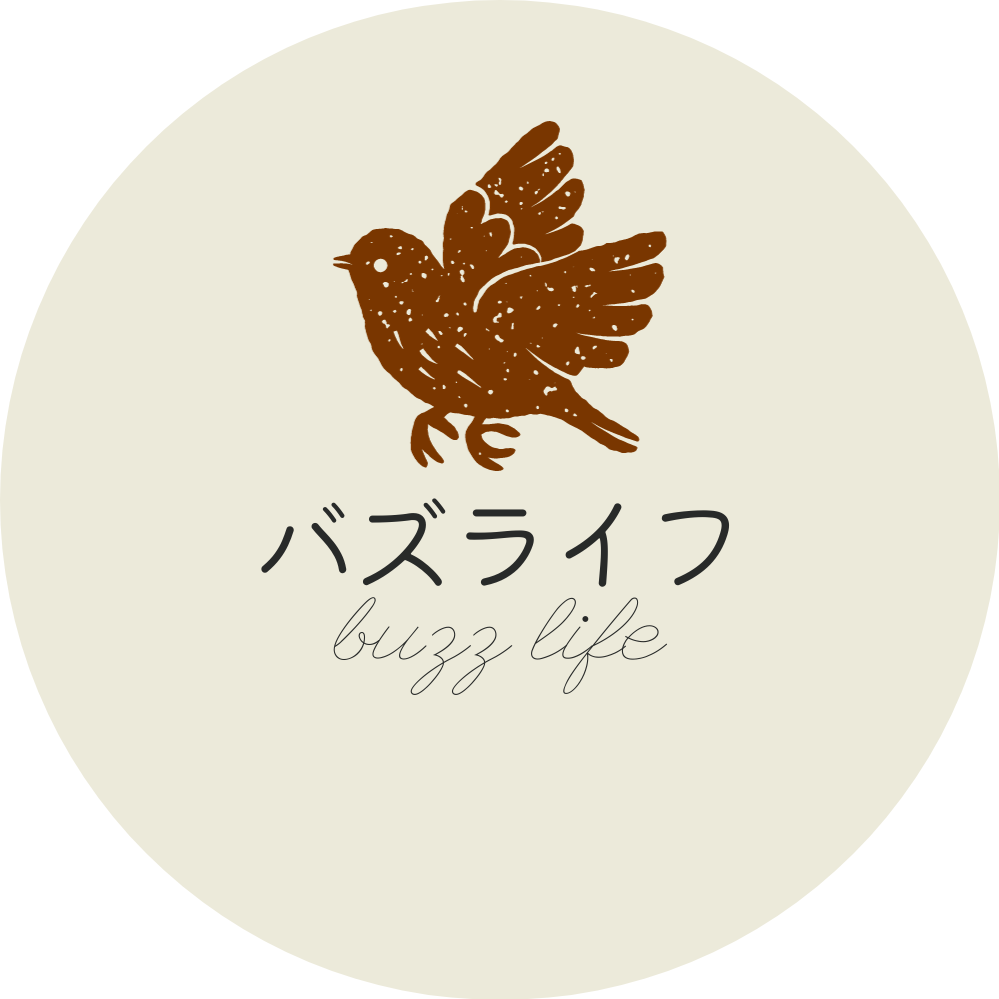Ferret Life Starting from Zero: All about beginner-friendly indoor care

Have you ever considered adopting a ferret as a new member of your family? With their adorable looks and unique personalities, ferrets have attracted pet lovers from all over the world. For beginners, however, raising a ferret can seem a bit daunting. Rest assured, this article will show you the basics of keeping ferrets indoors, as well as tips on how to enhance your life with them and how to care for them in a way that even beginners can easily follow.
Living with ferrets is not only fun, but also brings many benefits to your life. They have playful and active personalities that will bring life and joy to your daily life. Bonding with your ferret can also help relieve stress and stabilize your mind. In this article, we’ll explore ways to grow with your ferret and enrich each other’s lives.
- What is a ferret? : Basic Knowledge and Understanding
- How to Choose a Ferret: Tips for Identifying a Healthy Pet
- Housing for ferrets: ideal cage setup and environment
- Ferret Diet Management: Nutritious Meal Plans
- Daily care and health maintenance: grooming and exercise
- Ferret behavior and communication
- Bonding with Your Ferret: Tips for Building a Loving Relationship
- Conclusion On a fulfilling symbiosis with a ferret at the conclusion of life with a ferret.
What is a ferret? : Basic Knowledge and Understanding
For beginners who are considering raising ferrets, let’s start by gaining a basic knowledge of the ferret animal. Ferrets attract many people with their adorable appearance and unique personalities. However, before adopting a ferret as a pet, it is important to understand their biology, personality, and the basic knowledge required to keep them.

Origin and History of Ferrets
Ferrets are mammals belonging to the weasel family and have coexisted with humans for thousands of years. Originally bred in Europe as rat catchers, they are now kept as pet animals all over the world.
Characteristics of Ferrets
Ferrets are small mammals with long bodies, short legs, and sharp teeth. Their coat colors are diverse and include black, brown, white, and many other colors. Adult animals are usually 40-50 cm long and weigh around 0.7-2 kg, with an average lifespan of 6-8 years.
Ferret Personality
Ferrets are curious and active animals. They love to play and tend to especially enjoy interaction with humans. They are also very smart and can learn basic training and tricks. However, they can also be very independent and stubborn at times.
Ferret Breeding Environment
Ferrets are best kept indoors and require an appropriate cage and adequate exercise space. They are very curious and active, so it is important to keep them safe indoors.
Life with Ferrets
Owning a ferret brings much joy but requires proper care and attention. They require a special diet, regular health checks, and daily interaction.
Once you have decided to bring a ferret into your family, the next important step is to choose a healthy, happy ferret. Choosing the right ferret is the first step to a long and loving relationship. Below are some important tips for identifying a healthy ferret.
How to Choose a Ferret: Tips for Identifying a Healthy Pet
1.choose a breeder or a reliable dealer
- The first step in selecting a healthy ferret is to choose a reputable breeder or pet store.
- A good breeder will put the animal’s health and welfare first and will be transparent about the ferret’s genetic history and health status.。
2.check the ferret’s appearance
- Healthy ferrets have clear eyes, clean ears, and good teeth.
- The coat should be shiny and free of shedding and skin abnormalities.
- The body shape is well-proportioned and should be looked for signs of excessive emaciation or obesity.
3. Observe behavior and personality
- It is important to select a ferret that shows signs of being active and curious.
- Check to see if they are not afraid of their environment and show interest in people.
- Watch for unusual quietness or aggression as signs of illness or stress.
4. Check health records
- Check vaccination and health records before purchasing.
- Ask the breeder or clerk about any pre-existing conditions or specific health problems.
5. Compare multiple ferrets
- If possible, it is recommended that you see and compare several ferrets.
- This will give you a better understanding of the health and personality of each individual ferret.
6. Trust your intuition
- Finally, it is also important to choose a ferret that is a good match for you.
- Intuition and your first contact with a ferret can be an important clue to a long relationship.
When choosing a ferret, keep in mind the above points and be sure to select a healthy and active individual. Life with a healthy ferret can be a wonderful experience that brings joy and satisfaction. In the next section, we will go into more detail about setting up an ideal home for your ferret and creating its environment
Housing for ferrets: ideal cage setup and environment
Proper housing is essential for the comfortable and safe keeping of ferrets. Ferrets are active and curious animals, so a home for them must be both functional and safe. Below are some important points regarding the ideal ferret cage setup and environment creation.
How to choose a cage
- Size: Ferrets like to exercise, so it is advisable to choose the largest cage possible. At least 90cm x 60cm x 60cm x 60cm in length x width x height is recommended.
- DESIGN: A cage with multiple levels is ideal for ferrets to climb up and down. A cage with secure stairs or ramps is recommended.
- Material: Metal cages are common, easy to clean and durable. Wooden cages should be avoided because wood absorbs urine odors easily and is difficult to keep clean.
Location of cage
Temperature and Humidity: Ferrets are sensitive to excessive heat and cold. A temperature of 18-22°C (64-86°F) and humidity of 50-70% are ideal.
Quiet: It is recommended that the cage be placed in a quiet area where there is little excessive noise or human traffic.
Environmental safety: It is important that the cage surroundings are safe. Avoid hazardous plants, electrical cords, small objects, and anything else that could be accidentally ingested or harmed by the ferret.
Facilities in the cage
Sleeping Area: Ferrets prefer to sleep in a dark, warm place, so it is important to provide a comfortable place for them to sleep.
Toilet area: Place a toilet tray in one corner of the cage so the ferret can learn where to go to the bathroom.
Meal area: Food and water should be placed in clean, safe containers and placed in a separate area of the cage.
Play area: It is important to create a play area for the ferret, including tunnels, toys, and items for climbing.
Regular care and maintenance
- Cages should be cleaned regularly and kept clean. Thorough cleaning should be done once a week, and do not forget to clean up excrement daily.
Properly setting up a home for ferrets is critical to their health and well-being. Follow the guidelines above to provide a comfortable and safe environment for your ferret. The following sections discuss ferret diet management and nutrition in more detail.
Ferret Diet Management: Nutritious Meal Plans
Ferrets require a balanced and nutritious diet to maintain their health and well-being. Because ferrets are carnivores and have specific nutritional needs, it is important to understand and provide an appropriate diet plan. Below are suggested guidelines for ideal diet management and nutrition for ferrets.
Ferret Diet Basics
High protein, low carbohydrate: Ferrets require a high-protein diet and carbohydrate intake should be kept to a minimum.
Meat-based diet: It is important to choose a meat-based diet such as poultry, turkey, or lamb.
Specialty ferret foods: Ferret-specific foods available at pet stores or online are best. These are specially formulated to meet the nutritional needs of ferrets.
Appropriate food intake
Age appropriate: young ferrets are in a growth phase and require more food than mature ferrets.
Weight and health appropriate: Adjust the amount of food according to the ferret’s weight and activity level.
nutritional supplement
Taurine: Ferrets need foods that contain taurine. Many ferret foods already contain taurine.
Vitamin and mineral supplementation: It is important to choose a ferret food that is rich in vitamins and minerals.
Diversification of meals
Fresh meat: Sometimes fresh meat, raw or cooked, can be added to the ferret’s diet.
Ferret treats: It is important to choose healthy treats and give them in moderation.
How meals are served
Divide food into several portions per day: Because ferrets have small stomachs, it is ideal to offer several portions of food per day.
Always provide fresh water: Clean, fresh water should always be available.
Ferret diet management is directly related to their health and well-being. Use the guidelines above to provide a nutritious diet plan suitable for your ferret. The following sections detail routine care and health maintenance。
Daily care and health maintenance: grooming and exercise
Routine care and health maintenance are very important in life with ferrets. Proper grooming and moderate exercise are key to a healthy and happy life for your ferret. Below are some more tips on daily care and health maintenance for your ferret.

Grooming
Hair brushing: Ferrets should be brushed regularly to prevent shedding and tangling. Brushing several times a week is ideal.
Nail Clipping: Ferret nails grow fast and should be clipped regularly. Nails should be clipped carefully and care should be taken to avoid blood vessels.
Ear cleaning: It is important to clean the ferret’s ears regularly, as they are prone to dirt and ear wax buildup.
Bathing: Ferrets do not require frequent bathing. Bathing more frequently than necessary can cause skin dryness. Bathing once a month is appropriate.
Motion
- 活動時間の確保: フェレットは活動的な動物なので、毎日十分な運動時間を確保することが大切です。
- ケージ外の遊び: 安全な環境でのケージ外遊びを毎日行い、フェレットが自由に動き回れるようにしましょう。
- インタラクティブな遊び: トンネル、ボール、フェレット用のおもちゃを使って、フェレットとの相互作用を楽しむことができます。
- 運動の監視: 運動中はフェレットの安全を常に監視し、危険な物品や場所から遠ざけることが重要です。
Activity Time: Ferrets are active animals, so it is important to ensure that they receive adequate daily exercise time.
Out-of-cage play: Allow your ferret to roam freely with daily out-of-cage play in a safe environment.
Interactive play: Use tunnels, balls, and ferret toys to encourage interaction with your ferret.
Exercise supervision: It is important to constantly monitor your ferret’s safety during exercise and keep them away from dangerous objects and areas.
Health check
Regular health checks: Observe your ferret daily and check for any abnormalities. If you notice any signs of anorexia, laziness, or breathing problems, consult your veterinarian immediately.
Vaccinations and Routine Health Checks: Ferrets require regular vaccinations and health checkups. Remember to check up regularly with your veterinarian.
Routine care and maintenance of your ferret’s health is essential to their long and healthy life. Make the most of your ferret’s life through proper grooming and exercise. The following sections discuss ferret behavior and communication in more detail.
Ferret behavior and communication
To have a successful coexistence with ferrets, it is essential to understand their behavior and communication methods. Ferrets have unique behavior patterns and communication styles, and understanding these will help you develop a better relationship with them.
General ferret behavior
Curious: Ferrets are very curious and show interest in new environments and objects.
Playful: They are active and playful, often jumping and running around.
Digging: The ferret has a burrowing instinct and will burrow under furniture and into crevices.
Duking: The ferret may emit a distinctive “duking” sound when excited or playing.
Communication Methods
Body Language: Ferrets use their bodies to express themselves a lot. For example, they will stretch when they are relaxed or stoop when they want to play.
Voice Communication: Ferrets use a variety of sounds to communicate their feelings. Dooing” is a sound they make when they are enjoying themselves, and “squealing” is a sound they make when they are uncomfortable or threatened.
Biting behavior: Young ferrets often play with biting, which is not an aggressive behavior but a form of communication. However, it is important to control the force of the bite with proper training.
Tips for communicating with ferrets
- 観察: フェレットの行動や習慣を観察することで、彼らの気持ちやニーズを理解することができます。
- 応答: フェレットが遊びを求めている場合は、一緒に遊んであげることが重要です。これは信頼関係を築くのに役立ちます。
- 一貫したトレーニング: 咬む行動などの問題行動は、一貫したトレーニングとポジティブな強化でコントロールすることが可能です。
Observation: Observing ferret behavior and habits will help you understand their feelings and needs.
Response: If the ferret wants to play, it is important to play with it. This helps build trust.
Consistent Training: Problem behaviors such as biting can be controlled with consistent training and positive reinforcement.
Understanding ferret behavior and communication will help you build a deeper bond and ensure their well-being. In the next section, we will discuss training and discipline in detail to further strengthen your relationship with your ferret.
Bonding with Your Ferret: Tips for Building a Loving Relationship
Bonding with your ferret is critical in a mutually happy and fulfilling symbiosis. Below are some tips for building a loving relationship with your ferret.
1.building trust
First contact: It is important to approach and reassure the ferret in a slow and gentle manner so as not to frighten it.
Take your time: Trust does not build overnight. Be patient and take your time to develop a bond with your ferret.
2. Daily Interaction
Play with them: Providing playtime with your ferret will help strengthen the bond between you and them.
Talk to them: It is also important to talk gently to your ferret and get them used to your voice.
3. Positive reinforcement
Use rewards: Rewarding your ferret with treats or toys for correct behavior can help build a positive relationship.
Expressing affection: Gently touching or cuddling your ferret can show affection.
4. Maintenance of Health
Health considerations: Your ferret’s health should be your first priority, with proper diet, exercise, and regular health checks.
Comfortable living environment: Providing a comfortable and safe living environment can reduce stress and increase the ferret’s sense of well-being.
5. Training and Discipline
BASIC TRAINING: It is important to provide basic training, such as teaching your ferret to use the box litter box and how to call its name.
Consistent rules: It is important to keep the rules consistent and make sure your ferret understands expected behavior.
Bonding with your ferret is fostered through small daily acts and interactions. By treating your ferret with love and patience, you will strengthen the trust and bond between you and your ferret. In the next section, we will conclude our life with ferrets and talk about a fulfilling symbiosis with them.
Conclusion On a fulfilling symbiosis with a ferret at the conclusion of life with a ferret.
Living with a ferret means more than just having a pet. It is about enriching each other’s lives and building a special bonded relationship. Below are some pointers on how to have a fulfilling symbiosis with your ferret.
Mutual understanding and respect
Understanding ferret characteristics: It is important to understand and respect their natural behaviors and instincts.
Accepting individuality: Each ferret has its own unique personality. Recognizing and adapting to their characteristics will help you build a deeper bond with them.
Daily Sharing
- 共通の活動: フェレットとの遊びやトレーニングを通じて、楽しみや喜びを共有することができます。
- ルーチンの確立: 定期的な食事、運動、休息の時間を設けることで、安定した生活リズムを築くことができます。
Common activities: sharing fun and joy through play and training with your ferret.
Establish a routine: Establishing regular meal, exercise, and rest times can help establish a steady rhythm.
Importance of Communication
Non-verbal communication: ferrets express a lot through their body language and behavior. It is important to read their signs and respond appropriately.
Emotional sharing: Spending time with your ferret and expressing affection and appreciation will create a stronger bond.
Ensuring Safety and Health
Environmental care: It is important to provide a safe environment for your ferret and protect it from hazards.
Health Care: Regular health checks and proper care will protect the health of your ferret.
Mutual growth and learning
Provide new experiences: Provide ferrets with new games and environments, creating opportunities to learn and grow together.
Challenges and adventures: Life with ferrets can be challenging at times, but overcoming these challenges will help build mutual understanding and trust.
Life with a ferret is built on love, patience, understanding and respect. Throughout this amazing journey, you and your ferret will influence and enrich each other’s relationship. Finally, as you prepare to enjoy life with your ferret to the fullest, remember to cherish the deep love and bond you share with each other. Living with a ferret will bring you joy and fulfillment beyond your expectations.
